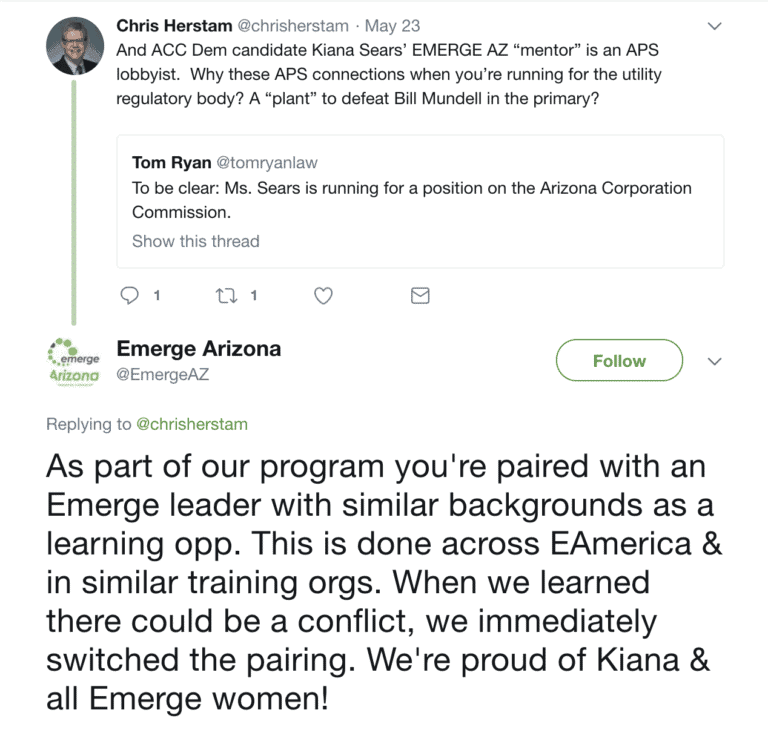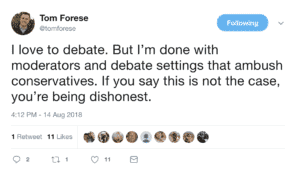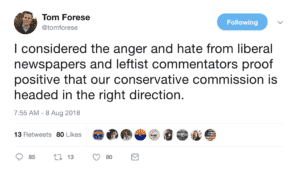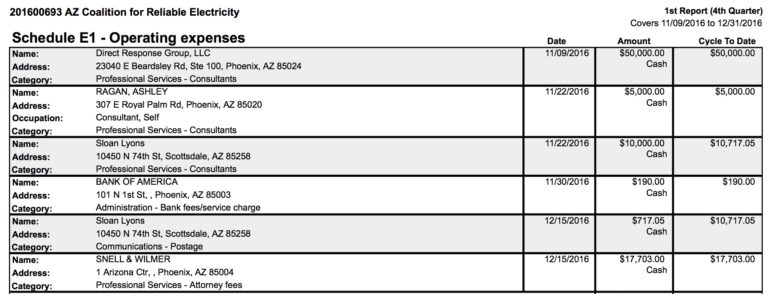A total of eight candidates are running for two seats on the Arizona Corporation Commission (ACC) this year, but that will change in just a few days after the primary election on August 28. Primary voters will decide which two of the five Republican challengers and which two of the three Democrats will make it to the November ballot. The Democrats running are Kiana Sears, Bill Mundell, and Sandra Kennedy. It has been eight years since Democrats won races for the ACC when Kennedy and Paul Newman won two of three seats in 2008 but went on to lose their reelection campaigns four years later. Meanwhile, Republicans Tom Forese and Justin Olson are running to keep their positions and are being challenged by Rodney Glassman, Jim O’Connor, and Eric Sloan.
Arizona’s largest monopoly electric utility Arizona Public Service (APS) and its parent company Pinnacle West have not directly contributed to a candidate. But it recently has become common for the utility to support candidates through PACs as it did in 2016 by openly spending $4 million to support Commissioners Andy Tobin, Boyd Dunn, and Bob Burns. In 2014, it is believed that APS spent $3.2 million to covertly help elect Forese and Doug Little to defeat Kennedy and Jim Holway while contributing $752,000 to help get the son of then-Corporation Commission Chairman Gary Pierce elected secretary of state. However, APS has $3.2 million ready to dispense through a group called Arizonans For Sustainable Energy Policy.
The utility has become toxic during this campaign cycle as candidates from both parties running for seats on the ACC have criticized it for its influence in state politics particularly at the ACC, and its most recent rate hike.
This article examines APS’ connections to candidates, notable energy-related decisions, as well as what the candidates envision Arizona’s energy future looks like since there are two competing energy standards making headlines. The competing standards include the constitutional amendment proposed by Clean Energy for a Healthy Arizona (CEHA), Prop 127, which would require Arizona utilities to generate 50% of their electricity from renewable sources by 2030. The other proposed standard is Commissioner Tobin’s Energy Modernization Plan, which would require 80% renewable energy by 2050. Tobin’s plan comprises of nuclear energy and would allow the rules to be changed over time if need be.
Democratic Candidates
Kiana Sears
Sears previously worked at the ACC in the Utilities Division for six years and left in 2014. Her treasurer of the campaign is Angela Copeland, who has over 30 years of experience working for APS and its parent company, Pinnacle West. Additionally, during Sears’ training at the women’s mentorship program, Emerge Arizona, Sears’ mentor was Wendy Valenzuela, who is the assistant to APS’ Vice President of State and Local Affairs Jessica Pacheco. Emerge Arizona pairs the mentor with mentees, and after realizing there was a conflict of interest with Kiana Sears’ pairing, the organization tweeted the following acknowledgment:

Emerge AZ tweet acknowledges the conflict of interest with Kiana Sears mentor pairing
During the debate, Kennedy said, “If you have a treasurer who was a 31-year former executive, then it says, ‘you have ties.’” Mundell called it a lack of judgment.
Sears defended herself by stating, “The time is what I mention. As we talk about the 2014 election, my treasurer has resigned before APS got involved in elections and that early retirement was to help Democrats get elected … You keep hearing the ‘perception.’ That is because there is no wrongdoing.”
Kiana Sears’ preference for Tobin’s Energy Modernization plan or CEHA’s Prop 127 is unclear at best.

Screenshot from Kiana Sears’ website
Her website contains very similar language to Commissioner Tobin’s plan, yet claims she does not agree with his plan.

Screenshot from Andy Tobin’s Clean Energy Modernization Plan
During the debate, she said, “If you look at my website, I don’t agree with Andy Tobin, but I do have numbers that are high when it comes to renewables. That looks at that 80% because I believe we should be at least 50% solar. When you look at 50% that includes solar … so when you add 50% solar and then add wind and other renewables you push the limits at being up to that 80%.”
Bill Mundell
Mundell’s campaign has centered on “the coziness of the commissioners and the utilities they regulate.” Mundell previously served two terms at the ACC as a Republican and was unable to run in the 2008 race due to term limits. He is also a former state representative and former presiding judge of the Chandler Municipal Court. As a state representative, he was Chair of the House Environment Committee and sponsored environmental legislation, including Arizona’s first recycling law.
He supports Prop 127, stating in the August debate, “I strongly support the clean-energy initiative, as that is the only way we are going to get there with the current commission.” He is the co-author of Arizona’s Renewable Energy Standard that requires electric companies to get 15 percent of their power from renewable sources such as solar and wind by 2025. When asked about the alleged expensive costs of Prop 127, he has claimed those are “scare tactics” by APS, and has cited Xcel’s Colorado report which uses solar at night through battery storage.
Sandra Kennedy
Kennedy is also running a campaign that focuses on providing greater oversight on APS along with the other utilities. “I am running because the monopolies have taken over the ACC,” Kennedy said earlier this year during a forum. “I’ve dubbed it the ‘corruption commission,’ not the Corporation Commission.”
Kennedy and Mundell, who are running together as a team, said that they will immediately add their names to Commissioner Bob Burns’ subpoena of APS to uncover how the utility has spent money in ACC races to increase transparency. APS has neither confirmed nor denied it was behind 2014 dark money contributions to groups that supported the campaigns of Tom Forese and Bob Stump. Stump is now formally working for the companies he used to regulate, and his policy advisor when he was on the commission, Amanda Ho, now works for APS.
Kennedy supports Prop 127, and in the August debate said, “the Tobin plan kicks the can down the road.” Kennedy, like the other Democratic candidates, asserts the importance of adopting renewables in Arizona, claiming that the economy will be hurt if it does not. In the August debate, she stated, “When you have California, Nevada, and Colorado who have upped the ante when it comes to renewable energy … Arizona is not going to be a player if this initiative does not come to pass.” Kennedy also supports a rehearing of last year’s APS rate increase, which is set for this fall. The rehearing case addresses customer bills as high as $17 per month when the rate hike was advertised as $6 per month.
Kennedy served on the ACC for one term but that ended when she lost her reelection bid in 2012. She was not planning on running again for the ACC but cited the influence that APS on the Commission as her primary motivation to run. Before her time on the ACC, she served six years as a state representative.
Republicans
Tom Forese
Chairman Tom Forese was elected to the ACC in 2014 with the support of alleged dark spending by APS, which has been brought up by the candidates on several occasions. He has also received flack for voting for the 4.5% rate increase last year that is the center of a highly controversial rate case rehearing set for later this year. The petition for the rehearing claims the actual rate increases have been up to three times higher than what was told to customers. During his tenure, he has also advocated for reductions in solar net metering.
Forese has referred to the Johnson Utility case as Arizona’s own “Flint, Michigan.” Over the past few years, Johnson Utility customers have complained to the ACC about poor service, including low water pressure, billing issues, water contamination, and sewage leaks and spills.
Yet, Forese was recently criticized by Mundell for neglecting to prevent this public health hazard. Mundell said that the ACC had the power to avoid this disaster. “If the commissioners had listened to their own staff, who had brought it to their attention over the last four years, the commissioners and the customers would have safe and healthy water to drink in Johnson Utilities territory,” said Mundell in the August Democratic debate.
In July, Forese suggested Ted Vogt resign as executive director of the ACC purportedly as a result of his wife’s employment at the lobbying firm Veridus, which APS hired to fight the CEHA ballot initiative. Forese said this presented a conflict of interest. Sources told the political outlet Yellow Sheet Report that Forese’s decision to oust Vogt was based on Vogt’s preference to hold the controversial rate case rehearing before November elections, and Forese wants the rehearing to be after the elections. The outlet also reported that “one source said Forese’s removal of Vogt as executive director also gave him an opportunity to portray himself as independent of APS and taking a stand against the utility giant, the sources said, and called Vogt a ‘sacrificial lamb.'”
Forese was running alongside Olson until mid-August when they decided to run separately. When asked about this during the Republican August debate, Olson responded, “I thought it made sense early on in the campaign to partner up, to share some signs … If Tom were here tonight, what I would ask him is, ‘Tom, you need to show up to defend your record.’”
Olson also pointed out during the debate that Forese voted for the APS rate hike and he did not.
Chairman Forese was absent from both the August and June ACC debates and was the only candidate to miss the meeting with The Arizona Republic editorial board. In a statement to the newspaper, Forese said, “Let me get this straight, my opponents have said that I don’t deserve another term at the Arizona Corporation Commission. I am shocked!”

Forese’s tweet in defense of his Republican debate absence

Forese’s tweet in response to his campaign trail absence
Up until April, Forese was running for state treasurer but dropped out of the race and has received flack as treating his Commissioner election as a backup option. He had been seeking the seat for more than a year.
Justin Olson
Restoring confidence to the ACC has been the backbone of Olson’s campaign thus far, as alluded to through his decision to distance himself from Chairman Forese. He said, “I’ve got a record and it is a different record. As I mentioned, I didn’t vote for that [APS] rate increase. I did vote to prohibit entities from accepting campaign contributions from the entities that we regulate. It is a very different record.”
Also, during the August debate, he highlighted the “rate relief” efforts that he led as a result of the tax reductions. But this is not an exception to Arizona nor Olson. Utility commissions across the country have opened dockets and have ordered the monopoly utilities they regulate to pass on the savings to ratepayers thanks to the reduction in the corporate tax rate.
Olson does not support required renewable efforts. When asked about renewables, he cited the lack of battery storage capabilities of solar. “Until then, I oppose mandates that artificially drive up the cost of utilities,” Olson said. “What I support are policies that drive costs down.”
Olson is a tax analyst who was appointed by Ducey in October 2017 to the ACC after he served in the Arizona Legislature from 2011-2017. As a legislator, he was an American Legislative Exchange Council member. During Olson’s tenure as a legislator, Pinnacle West was a top donor to him, according to the National Institute of Money in Politics.
Eric Sloan
In 2016, the Pinnacle West-funded AZ Coalition for Reliable Electricity hired Sloans’ public affairs shop Sloan Lyons Affairs. AZ Coalition for Reliable Electricity was created to spend utility money that year to help get Andy Tobin, and Boyd Dunn elected to the ACC.

AZ Coalition for Reliable Electricity’s campaign filing with the Arizona Secretary of State.
Despite working on a political committee for APS to help certain individuals win seats on the ACC, Sloan’s own campaign has centered around restoring integrity to the ACC. During the August debate, Sloan said that his priorities are to:
“negotiate lower rates on behalf of the ratepayers, making sure we get the lowest guaranteed rate of return for the utility company as possible according to the market rate, reopening the APS case because that case is not what they said it was going to be with regards to how it was passed and the increases that we’ve seen … and Justin [Olson] has shown some leadership at the Commission regards to utility deregulation and that’s a conversation I’d like to have.”
Sloan further claimed he is against mandates of any kind, in reference to Prop 127 and Tobin’s Energy Modernization Plan.
Also during the debate, Sloan had to defend himself about why was fired from the Department of Gaming for harassing workers. Records obtained by The Arizona Republic show that a state investigation confirmed he harassed employees and sang a slavery-related song as he passed by the desk of a Black worker. The song was “Swing Low, Sweet Chariot.”
Rodney Glassman
Throughout his campaign, Rodney Glassman has said he will focus on getting the Commissioners to adopt the Arizona Judicial Code of Conduct if elected; and he has criticized the ACC’s new code of ethics.
He also claims he would have supported Commissioner Burn’s efforts to get campaign information out of APS through a subpoena. Earlier this year, a judge ruled against Commissioner Burns and his attempts to examine APS and Pinnacle West’s financial books in an effort to uncover their 2014 spending in ACC races. A Maricopa County Superior Court judge concluded that since the four other members of the commission have refused to enforce the subpoenas, he lacks the legal authority to overrule the ACC’s decision.
Glassman is against mandates from the ACC to manage energy efforts and therefore, he does not support Prop 127. He also said that he also would not have voted for the state’s current renewable energy standard.
In 2010 he ran unsuccessfully for the US. Senate as a Democrat against Republican John McCain.
Jim O’Connor
Jim O’Connor is the only Clean Election Candidate in the GOP primary, which means he cannot accept special interest money (all three Democratic candidates are also Clean Election Candidates). He is currently retired after working for over 40 years in the securities industry. His campaign is focused on his lack of political corruption as well as his business experience. He has also stated that he will be a “one (term) and done” commissioner.
Like Mundell, O’Connor criticized the current ACC for not more closely monitoring Johnson Utilities.
When asked about Prop 127 in the August debate, O’Connor wrote it off as being “a fairy tale.”
O’Connor cites rate hikes from APS as well as water company EPCOR, as the main reasons he is campaigning for a seat on the ACC. When asked in the August debate about deregulation, he claimed he had not, “done a lot of homework” on it.

